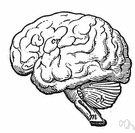Amyloid plaque levels in the 10 mg/kg fixed dose at 36 months remained at a level considered below the quantitative cut-point that discriminates between a positive and negative scan.
The findings showed that the common over-the-counter medication decreases
amyloid plaque, major signs of Alzheimer's disease, pathology in mice by stimulating lysosomes, the component of animal cells that help clear cellular debris.
However, it has been found that a link between aspirin and Alzheimer's disease decreases
amyloid plaque pathology in mice by stimulating lysosomes.
Researchers collected samples of cerebrospinal fluid from 208 cognitively normal people, ages 55 to 90, and measured levels of biomarkers for amyloid beta, responsible for the hallmark
amyloid plaque buildups of Alzheimer's disease.
In patients treated up to 24 months in the titration cohort,
amyloid plaque reduction as measured by positron emission tomography (PET) was consistent with the dose- and time-dependent results observed in the fixed-dose cohorts.
Aducanumab is thought to target aggregated forms of beta amyloid including soluble oligomers and insoluble fibrils which can form into
amyloid plaque in the brain of AD patients.
"These early studies of aducanumab show its effectiveness in removing
amyloid plaque from the brain as well as its potential effect on the slowing of cognitive decline in patients suffering from Alzheimer's disease," Alfred Sandrock, executive vice president and chief medical officer at Biogen, said in a (https://media.biogen.com/press-release/corporate/nature-publishes-results-pre-clinical-research-and-phase-1b-study-biogens-in) statement.
Researchers at Braincure Biotech prefer the latter approach, considering that the loss of the G protein-coupled receptor 3 (abbreviated GPR3) could reduce the
amyloid plaque accumulation and increase cognitive functions.
The mutation carriers were found to have
amyloid plaque and inflammatory changes almost twenty years before the estimated debut of memory problems.
The progression of AD is characterized by the accumulation of
amyloid plaque in the brain, which is associated with the enzyme BACE.
Alzheimer's disease is characterized by the accumulation of
amyloid plaque in the brain.
 amyloid plaque - a plaque consisting of tangles of amyloid protein in nervous tissue (a pathological mark of Alzheimer's disease)
amyloid plaque - a plaque consisting of tangles of amyloid protein in nervous tissue (a pathological mark of Alzheimer's disease)